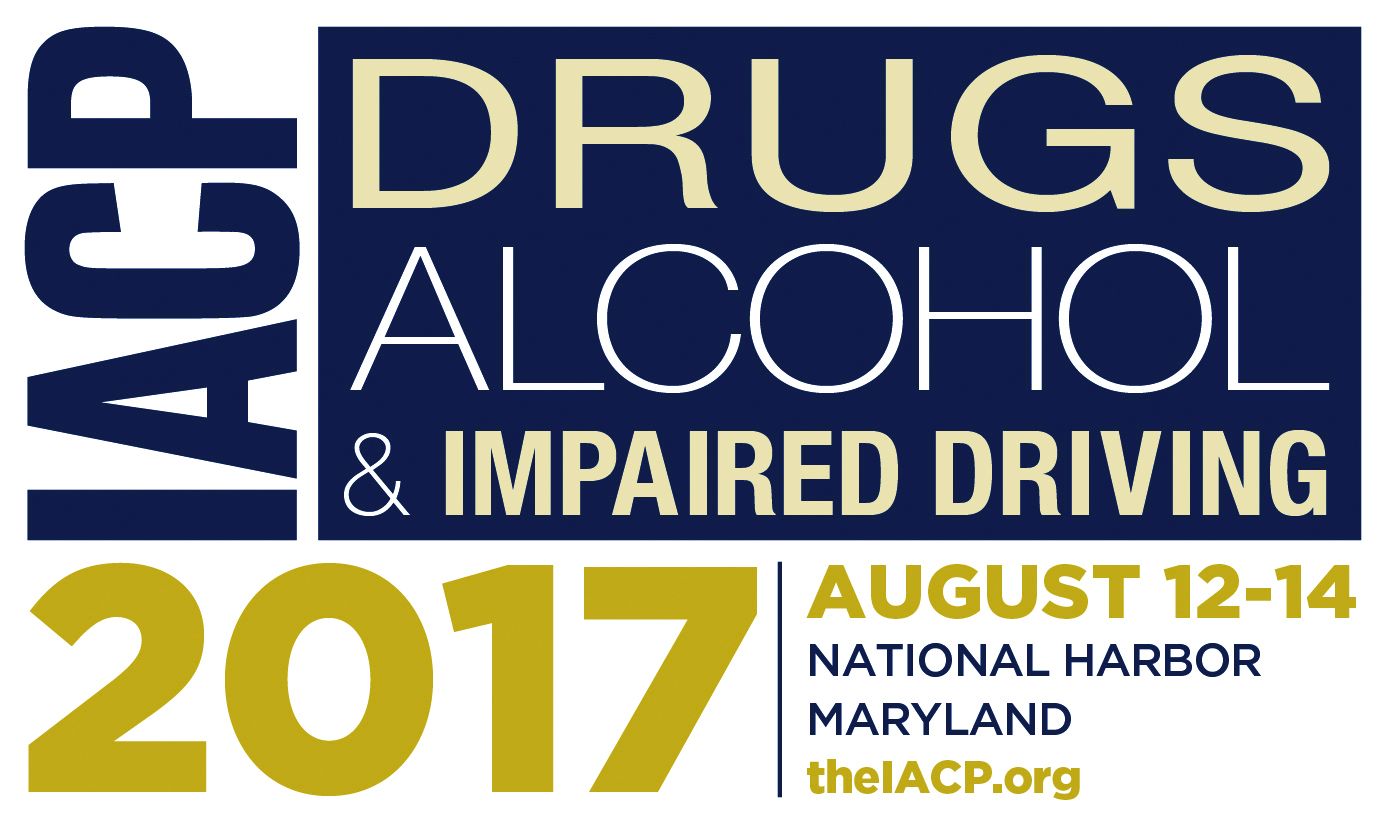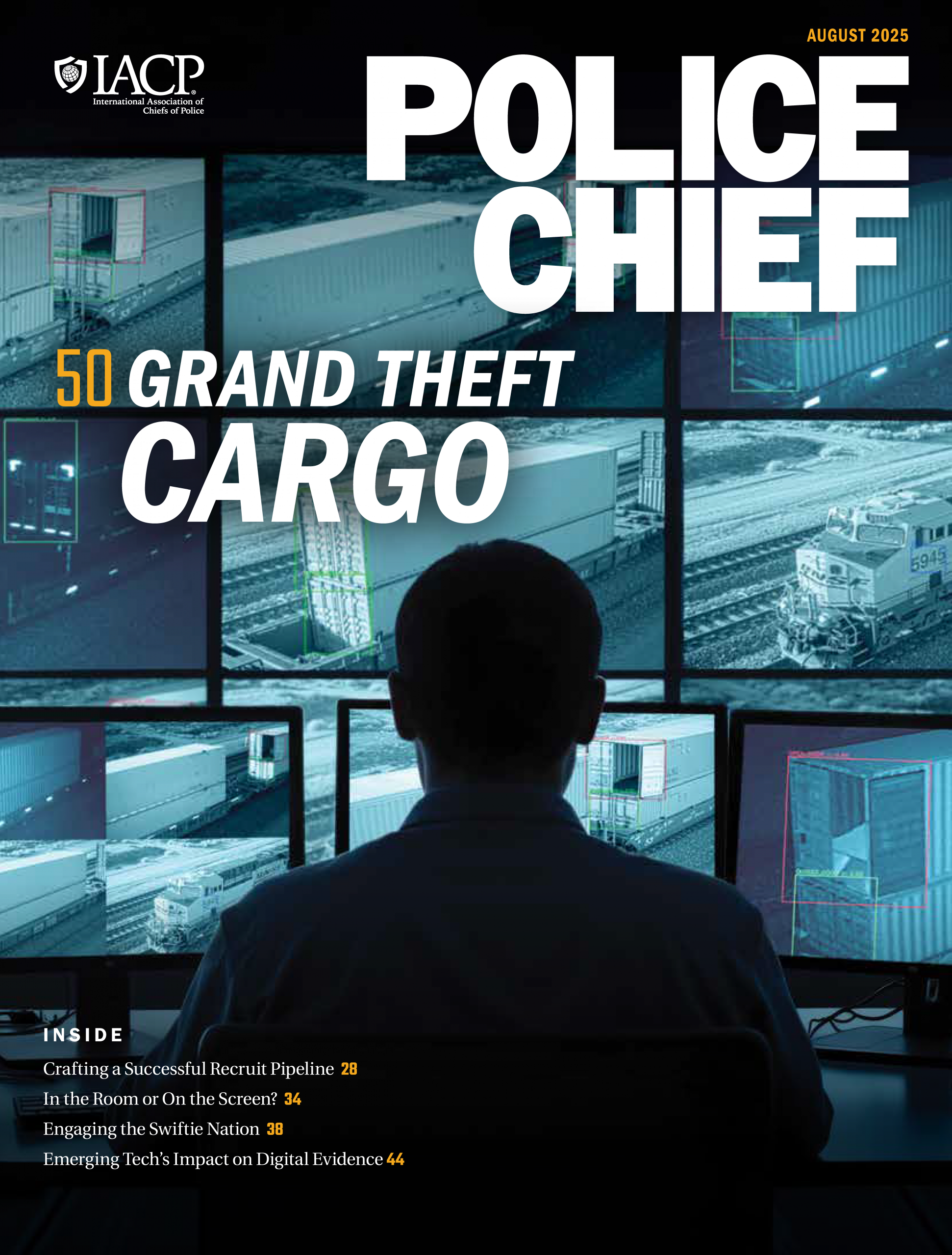
For 22 years, the International Association of Chiefs of Police (IACP) has partnered with the National Highway Traffic Safety Administration (NHTSA) and various state highway safety offices to provide one of the premier impaired driving training conferences in the world. The first IACP Annual Training Conference on Drugs, Alcohol, and Impaired Driving, held in Phoenix, Arizona, in 1993, attracted approximately 300 attendees. Last year’s conference, which was held in Denver, Colorado, attracted more than 1,000 attendees.
Hosted by the IACP Drug Recognition Expert (DRE) Section, the annual conference provides certified drug recognition experts, physicians, toxicologists, prosecutors, and other traffic safety professionals with a forum in which to share information, best practices, and lessons learned in impaired driving enforcement and drug recognition settings. Though the technology and practices are constantly evolving, the conference provides consistent training, professional development, and an international forum for DREs and other highway safety professionals on a broad array of new and emerging impaired driving issues.
The 2017 annual conference will be held August 12–14 at the Gaylord National Resort and Conference Center in National Harbor, Maryland. The annual DRE State Coordinators meeting will take place the day prior to the conference (August 11). The 2017 conference will feature a mix of plenary sessions and concurrent workshops designed to keep attendees up to date and informed on the latest practices and the science of alcohol and drug impairment. Topics will include the traffic safety implications of marijuana combined with alcohol and the combination’s effects on driving, the danger of fentanyl impairment, the use of oral fluid testing for driving under the influence of drugs (DUID), DRE report writing, expert courtroom testimony, pre-arrest diversion of offenders into treatment, and other relevant topics. In addition, the conference includes the following:
Premier training opportunities. Whether a drug recognition expert, highway safety advocate, law enforcement officer, prosecutor, toxicologist, or private or nonprofit highway safety program provider, each attendee will be provided with exceptional informative training.
Affordable rates. Government-rate lodging and a budget-friendly registration fee are available, making the conference one of the most affordable international training events.
Hot topics. With drugged driving now a major highway safety and public health issue, the conference will focus on many of the “hot topic” impairment-causing drugs, their impact on public health and driving, and evidence-based programs being utilized by law enforcement agencies to combat the use of these drugs.
Knowledgeable speakers. General sessions and workshops feature knowledgeable presenters who are subject matter experts in the areas of drugged driving, drug toxicology, and the prosecution of challenging impaired-driving cases.
Networking opportunities. Opportunities through conference workshops and other activities will be available for formal and informal net-
working with peers and experts in the field.
State-of-the-art technology. Numerous companies, organizations, and government agencies will exhibit the latest impaired-driving detection products, programs, and publications.
Professional development. Learning about new evidence-based strategies will help improve attendees’ productivity and allow the sharing of important information on impaired driving with colleagues in their agencies.
Return on investment. Attendees can expect to return from the conference with new ideas, information about best practices, and resources that can be used right away.
DRE recertification. For DREs, the conference will fulfill the required eight hours of recertification training and provide updated and relevant information that will benefit their agencies, fellow DREs, and their communities.
Though the technology and practices are constantly evolving, the conference provides consistent training, professional development, and an international forum for DREs and other highway safety professionals on a broad array of new and emerging impaired driving issues.
Another important activity that occurs each year at the Annual Training Conference on Drugs, Alcohol, and Impaired Driving is the recognition of individuals who have made notable contributions to the Drug Evaluation and Classification (DEC) Program.
DRE Emeritus: Available only to formerly certified DREs who have served the purposes of the DEC Program honorably and with the highest integrity and who are no longer eligible for or capable of maintaining DRE certification (e.g., retirees from law enforcement or individuals promoted to an executive position).
DRE Ambassador: Available to an individual who has contributed significantly to the DEC Program, but is not and has not been a certified DRE.
Karen Tarney-Bookstaff DRE of the Year: Presented annually by the IACP DRE Section to a certified DRE who demonstrated outstanding contributions to the DEC Program for the previous calendar year.
Granted only by the IACP DRE Section, a DRE Emeritus, DRE Ambassador, or DRE of the Year status is an affirmative acknowledgement of the individual’s contributions to the IACP DEC Program and the DRE community.
Information regarding these three recog-nition categories can be accessed at the IACP DRE Section webpage.
IACP’s Drug Recognition Expert Section
In 1992, the IACP governing body approved the creation of the IACP DRE Section. The primary purposes of the section are to serve as a coordinating body among the various DRE associations or chapters within states, to serve as a resource, and to respond to the views and needs of the membership. Drug recognition continues to be an excellent tool in identifying and prosecuting drug-impaired drivers. Professional interest in the DEC Program and procedures has grown from impaired-driving enforcement to include workplace drug impairment evaluation, juvenile justice, corrections, and other fields.
The IACP DRE Section provides a unique opportunity for those professionals already associated with drug recognition to share common management, training, administrative, and practicing concerns. Recertification training ideas, continuing and advanced education, creative teaching techniques for instructors, certification problems and solutions, and the development and sharing of databases are some of the issues considered by the IACP DRE Section. The section provides DREs, the practitioners of drug influence recognition, and program coordinators with an ongoing forum for a discussion of needs and concerns through membership in the section. As with all IACP sections, individuals must be members of the association in order to join the DRE Section.
|
To learn more about joining the IACP DRE Section, visit the IACP DRE Section page. To learn more about or to register for the IACP Annual Conference on Drugs, Alcohol, and Impaired Driving, visit the DRE conference webpage. |


